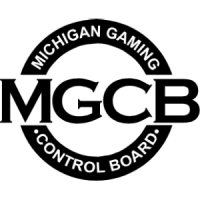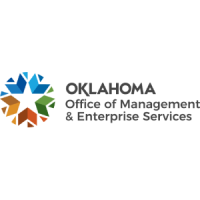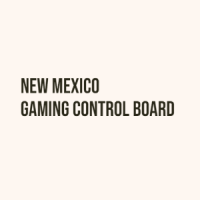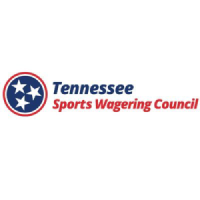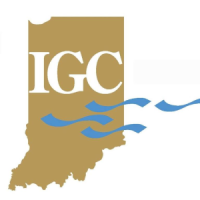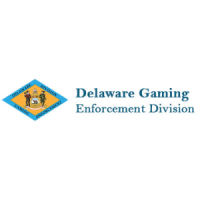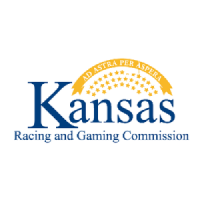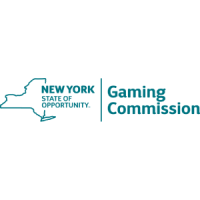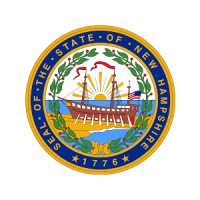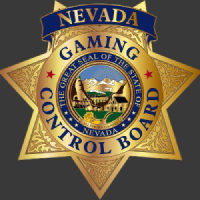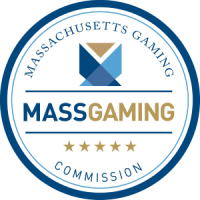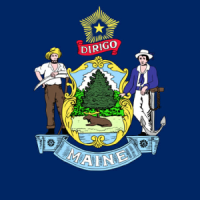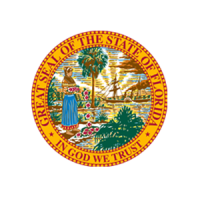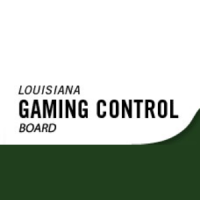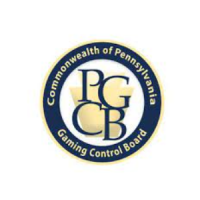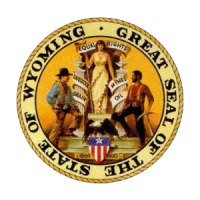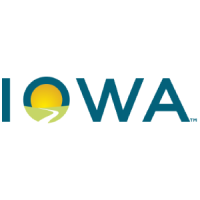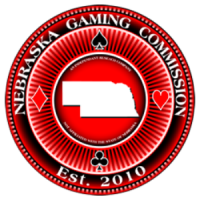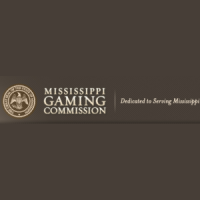Maryland State Lottery & Gaming Control Agency
Authorized by the General Assembly, the State Lottery and Gaming Control Agency was formed as the State Lottery Agency by constitutional amendment in 1972 (Chapter 365, Acts of 1972, ratified November 7, 1972). The Agency began operation on January 2, 1973, and by April 1973 began selling lottery tickets and awarding prizes. In October 2012, it reformed under its present name with added responsibilities as regulator of casinos in Maryland (Chapter 1, Acts of 2012, 2nd Special Session).
The Maryland Lottery and gambling casinos in the State are overseen by the State Lottery and Gaming Control Agency (Code State Government Article, secs. 9-101 through 9-125; & 9-1A-01 through 9-1A-34). The Agency also regulates sports wagering and on-line fantasy competitions (Code State Government Article, secs. 9-1E-01 through 9-1E-16, & 9-1D-01 through 9-1D-05).
The State Lottery and Gaming Control Agency operates the Maryland Lottery through a combination of employees and vendor services, and oversees casinos and sports wagering entities, which are privately held independent businesses. In addition, the Agency regulates a number of smaller ancillary gaming programs.
MARYLAND LOTTERY
Through the Maryland Lottery, lottery tickets are sold and cashed at licensed retail establishments throughout Maryland. These lottery agents are private businesses that receive commissions and fees to sell the games to the public. Transactions are conducted through terminals and self-service vending machines that are connected to a computerized real-time system.
Revenues from the Lottery are credited to the State Lottery Fund (Code State Government Article, secs. 9-118 through 9-120). Monies in the State Lottery Fund are deposited into the Maryland Stadium Facilities Fund, the Maryland Veterans Trust Fund, and the Baltimore City Public School Construction Financing Fund. The remaining monies are deposited into the State General Fund (Code State Government Article, sec. 9-120).
Lottery income is the State’s fourth-largest source of revenue, after income taxes, sales taxes, and corporate taxes. Approximately 60% of what the Lottery makes from ticket sales goes back to players in the form of prize money. Some 7% goes to retailer commissions, and 3% to operational expenses. The remaining 25% of revenues from the State Lottery are deposited in the General Fund of the State Treasury to support Maryand government programs, including those in education, public health, public safety and the environment. Detailed breakdowns by year are available at http://www.mdgaming.com
LOTTERY DRAWING GAMES
The State Lottery and Gaming Control Agency provides a variety of terminal-based games which include
Pick 3, Pick 4, Pick 5, Bonus Match 5, Cash4Life, Keno, Mega Millions, Multi-Match, Powerball, and
Racetrax. Subscriptions are offered for Cash4Life, Multi-Match, Mega-Millions and Powerball.
Drawing results are available at http://www.mdlottery.com, the Maryland Lottery’s mobile phone app, and the winning numbers phone line (410) 230-8830.
Cash4Life is a multi-state game with a top prize of $1,000 a day for life and a second-tier prize of $1,000 a week for life. Players select six number from two different fields: five numbers from a range of 1 to 60 and one Cash Ball number from a range of 1 to 4. Sold in 10 states, tickets cost $2. Drawings are held nightly in Trenton, New Jersey.
Daily Drawings. The Lottery holds twice-daily drawings for Pick 3 (a three-digit game, with prizes ranging from $25 to $500); Pick 4 (a four-digit game, with winners receiving between $100 and $5,000); and Pick 5 (a five-digit game, with winners receiving between $25 and $50,000). Bonus Match 5 (a pick of 5-of-39 game) drawings are also held daily, offering a top prize of $50,000.
Monitor Games include Keno and Racetrax. Keno is a monitor-style game with drawings held every four minutes. Players select up to 10 numbers from a field of 80 and match them to a computer-generated group of 20 numbers displayed on a Keno monitor. Prizes range from $2 to $100,000. Racetrax is a computer-animated horseracing simulation game. Players select horses numbered from 1 to 12 to win prizes ranging from $1.20 to $650,248. Drawings are held approximately every four minutes.
Mega Millions (formerly The Big Game) is a multi-state game with jackpots that start at $20 million. Players select six numbers from two different fields: five numbers from a range of 1 to 70 and one Mega Ball number from a range of 1 to 25. Winning numbers are drawn on Tuesday and Friday nights in Atlanta, Georgia. The game costs $2 to play. Forty-six states plus the District of Columbia and the U.S. Virgin Islands participate.
Multi-Match (formerly Lotto) is a lotto-style game. Players pick six numbers from a range of 1 to 43, and are given two more randomly generated sets of six numbers from that same range. Drawings are held on Monday and Thursday nights. The game offers a minimum jackpot of $500,000. Nine other prize levels range from $2 to $2,000. Multi-Match is played only in Maryland.
Powerball has been offered since January 31, 2010. Today, Maryland and forty-five other states, the District of Columbia, Puerto Rico, and the U.S. Virgin Islands participate in Powerball. Players select six numbers from two different fields: five numbers from a range of 1 to 69 and one Powerball number from a range of 1 to 26. Tickets are $2 and drawings are held Monday, Wednesday and Saturday nights in Tallahassee, Florida, for jackpots starting at $20 million.
FAST PLAY INSTANT GAMES
In 2020, the Lottery introduced Fast Play instant games, which are similar in style to scratch-off tickets, but are printed on-demand at the time of purchase by Lottery terminals and self-service vending machines. Prices range from $1 to $20. Some Fast Play games offer progressive jackpot prizes, which start at a base amount and increase with the sale of each ticket until a jackpot-winning ticket is sold.
LOTTERY INSTANT GAMES
The Lottery offers more than 50 pre-printed, scratch-off games at prices ranging from $1 to $30. Each scratch-off game launch includes thousands of winning tickets, with prizes of varying amounts, including top prizes as high as $2 million.
PRIZES
All Maryland Lottery retailers are authorized to redeem winning tickets with prizes of $600 or less. Winning tickets up to $5,000 can be redeemed at Expanded Cashing Authority Program (XCAP) retail locations. Maryland’s six licensed casinos are authorized to redeem winning Lottery tickets valued up to $25,000. Prizes larger than $25,000 must be claimed at the Lottery’s Claims Center in Baltimore, which is open by appointment only.
With Senate advice and consent, the Director of the State Lottery and Gaming Control Agency is appointed by the Governor (Code State Government Article, sec. 9-106). With the approval of the State Lottery and Gaming Control Commission and the Legislative Policy Committee of the General Assembly, the Agency’s Director may enter into agreements to operate multijurisdictional lotteries with any other political entity outside the State or outside the United States, or with a private licensee of a state or other nation (Chapter 449, Acts of 2002; Code State Government Article, sec. 9-111).
STATE LOTTERY & GAMING CONTROL COMMISSION
In 1973, the State Lottery and Gaming Control Commission originated as the State Lottery Commission authorized by the General Assembly (Chapter 365, Acts of 1972). It reformed as the State Lottery and Gaming Control Commission in 2012 (Chapter 1, Acts of 2012, 2nd Special Session).
The Commission serves as an advisory board to the State Lottery and Gaming Control Agency. In November 2008, the Commission also was assigned responsibility for regulating the operation of video lottery terminals (slot machines) in Maryland (Chapter 4, Acts of 2007 Special Session; Code State Government Article, sec. 9-1A-04).
Lottery, casino and sports wagering operations, regulations, contracts, and licenses are overseen by the Commission. In conjunction with the State Lottery and Gaming Control Agency, the Commission also is responsible for regulating table games, and the operations of the State’s video lottery terminals.
Commission members review and approve new or amended lottery, casino and sports wagering regulations before they are submitted for Legislative review. Agency contracts also are reviewed and approved by the Commission before submission to the Board of Public Works or the Department of General Services, In addition, the Commission reviews and approves licenses for casino and sports wagering operators, principal entities, manufacturers, contractors, and vendors and employees.
Further, since May 2021, the Commission has the added responsibility of generally overseeing the regulation of sports wagering and fantasy gaming competitions in the State (Chapter 356, Acts of 2021).
Seven members constitute the Commission. They are appointed to five-year terms by the Governor with Senate advice and consent. The Governor also appoints a liaison member from the Maryland Racing Commission as a member of the State Lottery and Gaming Control Commission (Chapter 1, Acts of 2012 2nd Special Session). Annually, from among its members the Commission chooses the Chair (Code State Government Article, secs. 9-104 through 9-109).
The Commission is assisted by the Maryland Amusement Game Advisory Committee.
MARYLAND AMUSEMENT GAME ADVISORY COMMITTEE
In June 2014, the Maryland Amusement Game Advisory Committee was established by the General Assembly (Chapter 464, Acts of 2014).
The Committee advises the State Lottery and Gaming Control Commission on the conduct and technical aspects of the amusement game industry, including recommendations for the legality of skill-based amusement games.
Seven members make up the Committee. Appointed by the Governor, six are voting members. The Director of the State Lottery and Gaming Control Agency serves ex officio as a nonvoting member. The Governor names the Chair (Code Criminal Law Article, sec. 12-301.1).



